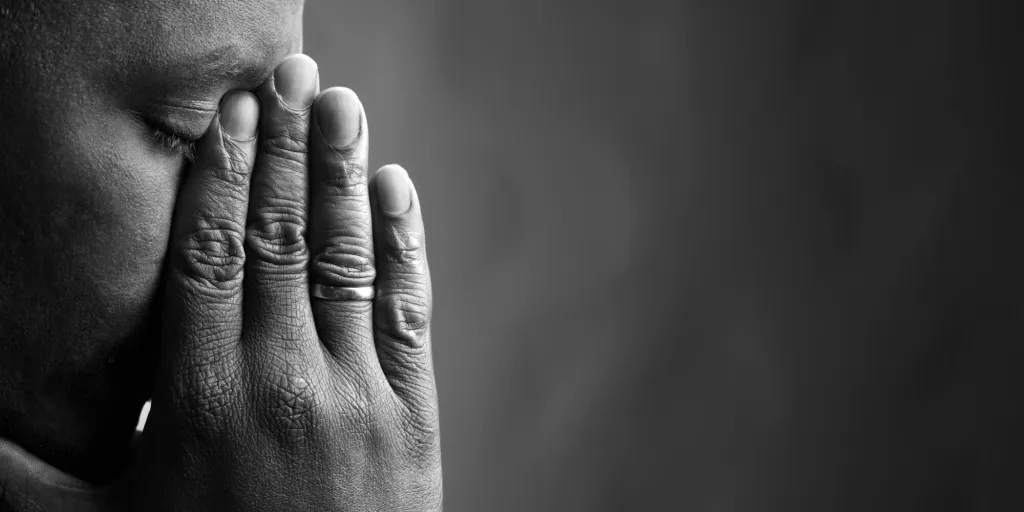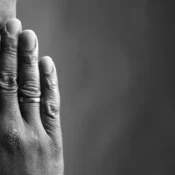Grief and Mental Health – Round Post

As someone that has unfortunately experienced grief, I often feel there is not much said in terms of how grief can affect our mental health. Before we go into this, I want to start by saying this isn’t expert advice or me trying to insinuate that I know everything.
All I want to do is share my opinion based on my grief journey.
When I lost my parents, my emotions were all over the place and so was my mental health. For the first time in my life, I had to deal with my mental health and consciously find ways to maintain my peace of mind.
Before my losses, I would say my attitude towards mental health was very ignorant. I often thought that it would not be affected or shaken in any way shape or form.
The truth is I hadn’t gone through anything traumatic enough that affected my mental health. Again, I feel like I must add a caveat and say that trauma isn’t the only thing that can affect our mental health – it can be a myriad of things. For me, that was just my view on my mental health (which has since changed).
Grief has made me realise that my mental health is so precious, and it should be something I, and all of us for that matter, should prioritize as we do our physical health. This isn’t always simple because not everyone realises their mental struggle until they reach a breaking point.
My mental health started to take a hit when I felt that I couldn’t escape from my grief.
Now let me explain because you may be wondering if that makes any sense. What I mean by this is, I felt mentally drained because I felt like grief was all I was. I was in a state where I was so down because I felt like there was no life beyond grief.
It took a while to get my mind out of this state and to a place where I viewed my grief in a positive light. There were a few things that helped me. This is not a one-size-fits-all approach but I am merely sharing a few things as it may help someone in a similar situation:
Grief Doesn’t Define You
This may sound so straightforward stating this but saying it is one thing and actively believing it is another. The issue I encountered was feeling like grief was the worst and best thing that would ever happen to me.
I started, although it took a while, to accept that grief is a part of my life, and it doesn’t define my entire existence. Embracing it helped me because it further allowed me to use my grief as an avenue to help others.
This feeling birthed my podcast and a passion to connect with people who also find themselves on this road that is grief.

Expressing Grief
Some may talk about it, write about it, or simply have a workout session in the gym. I know you may be thinking about how going to the gym is a form of grief expression, but that is the thing: grief can be expressed in many ways so long as it’s positive.
For me, writing about grief and talking about it helped me massively and I was able to have a more positive attitude toward my grief. Having an outlet to express the good, bad and ugly when it comes to grief helps maintain good mental health.
Your Feelings Are Not Invalid
This is, to an extent, like when people say, “well it could be worse” or “there is always someone that has it worse than you”. Whilst this may be true, it shouldn’t invalidate how you feel. Some most likely people have been through worse than me in terms of grief, but I am still entitled to feel how I feel.
At times I would find myself feeling a sense of guilt for being in my feelings as there are people who I have come across and who have lost a child. In some cultures, losing a child is tragic because some believe that your children are not supposed to go before you.
I may not know what it is like to experience such a loss but my feelings about my grief are just as important.
Going through grief isn’t a thing of comparison but it is about supporting those who are walking the same path.

Our mental health is something we need to continuously work on. We will all have good and bad days, but our goal should never fluctuate – maintain good mental health. As mentioned earlier, there are many ways we can promote good mental well-being.
Here at The Balanced Wheel, we do our best to provide insight and help others through our work. Here are a few related posts that you may find useful:
We’ll love to hear your story. Stories are a powerful learning tool. Everyone has stories to tell. Each story is unique and powerful.
Every story about the loss of a loved one is important. We invite you to share your story with us here, whether you have been bereaved or if you have supported a bereaved friend or family member. We would love to hear your story.

Jermaine after the loss of his parents started a podcast, Thinking Out Loud with his friend Ben who sadly also lost his father at 12 years old and his mother at 19. They explore, amongst themselves and with a range of different guests, the unspoken truths about grief and mental health.
Author
Recent Posts
Grief and Mental Health – Round Post
Collective Grief – Round Post
Getting Over The Death Of A Loved One
Your Story
Matters
info@balancedwheel.co.uk


